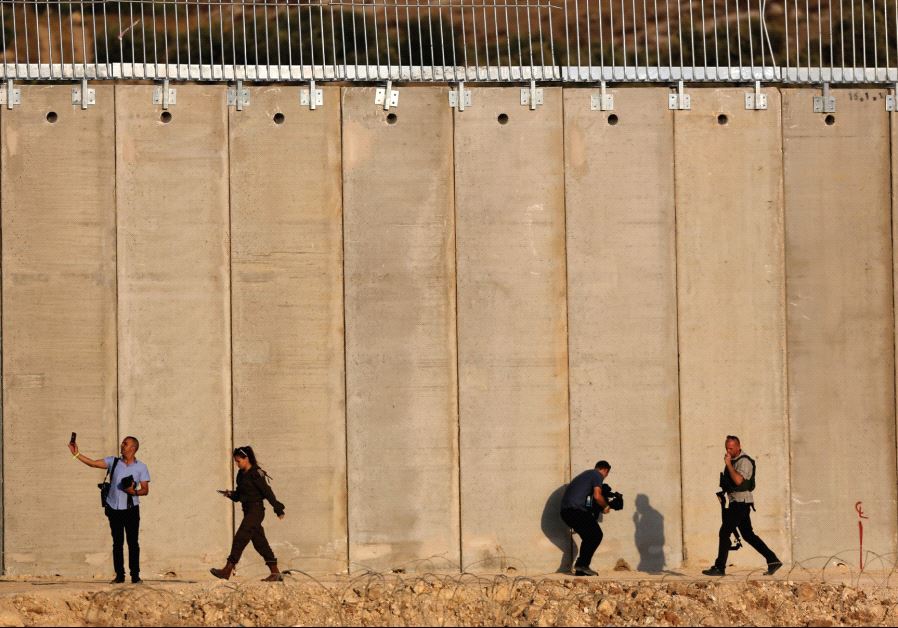Rethinking our vision of peace
A peace treaty between Israel and the Palestinians – and by extension, the Arab world – will simply represent an end to official conflict.
 Security personnel walk in front of the barrier with the West Bank near Havat Ella, 20 km. southwest of Hebron.
Security personnel walk in front of the barrier with the West Bank near Havat Ella, 20 km. southwest of Hebron.